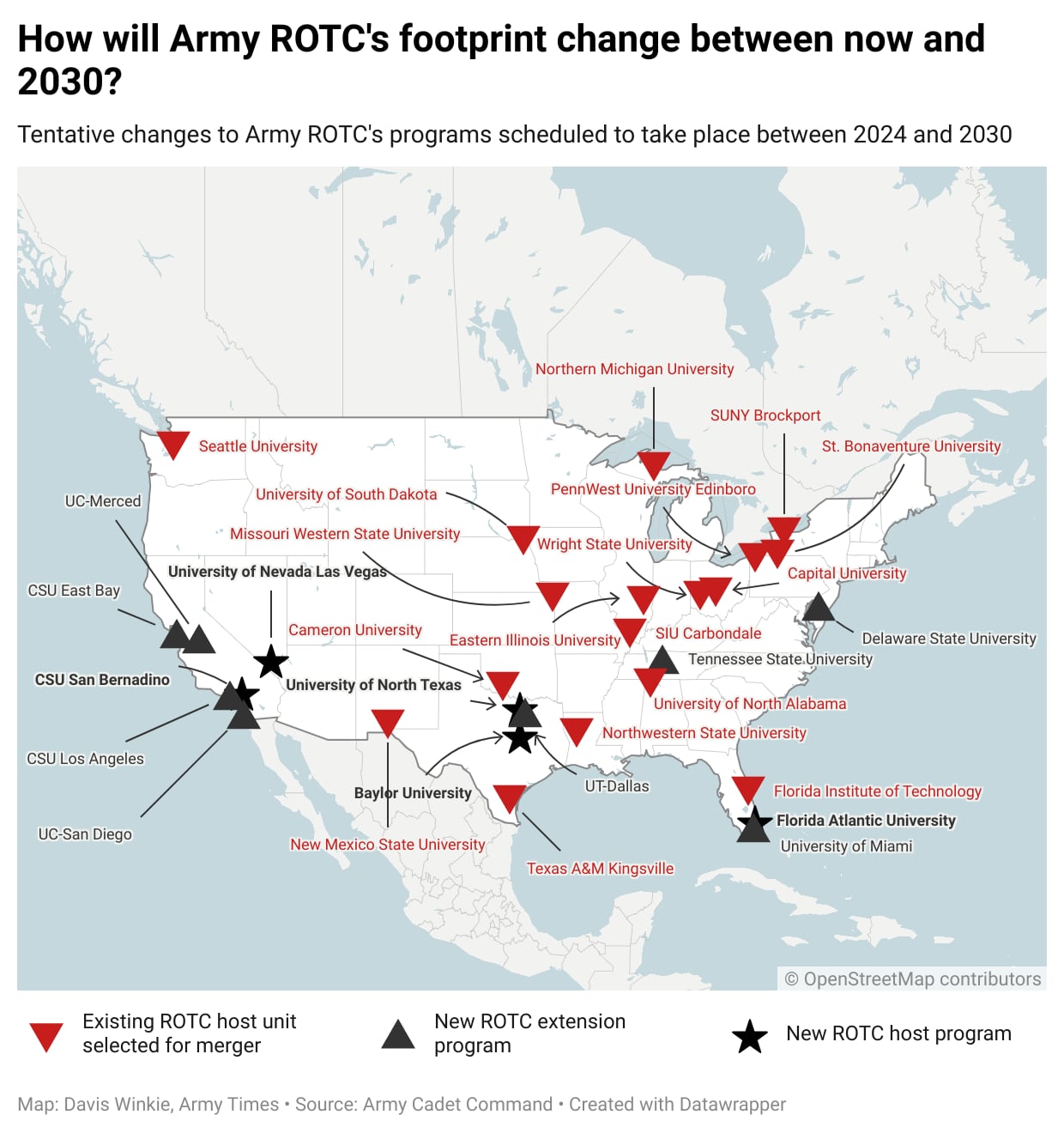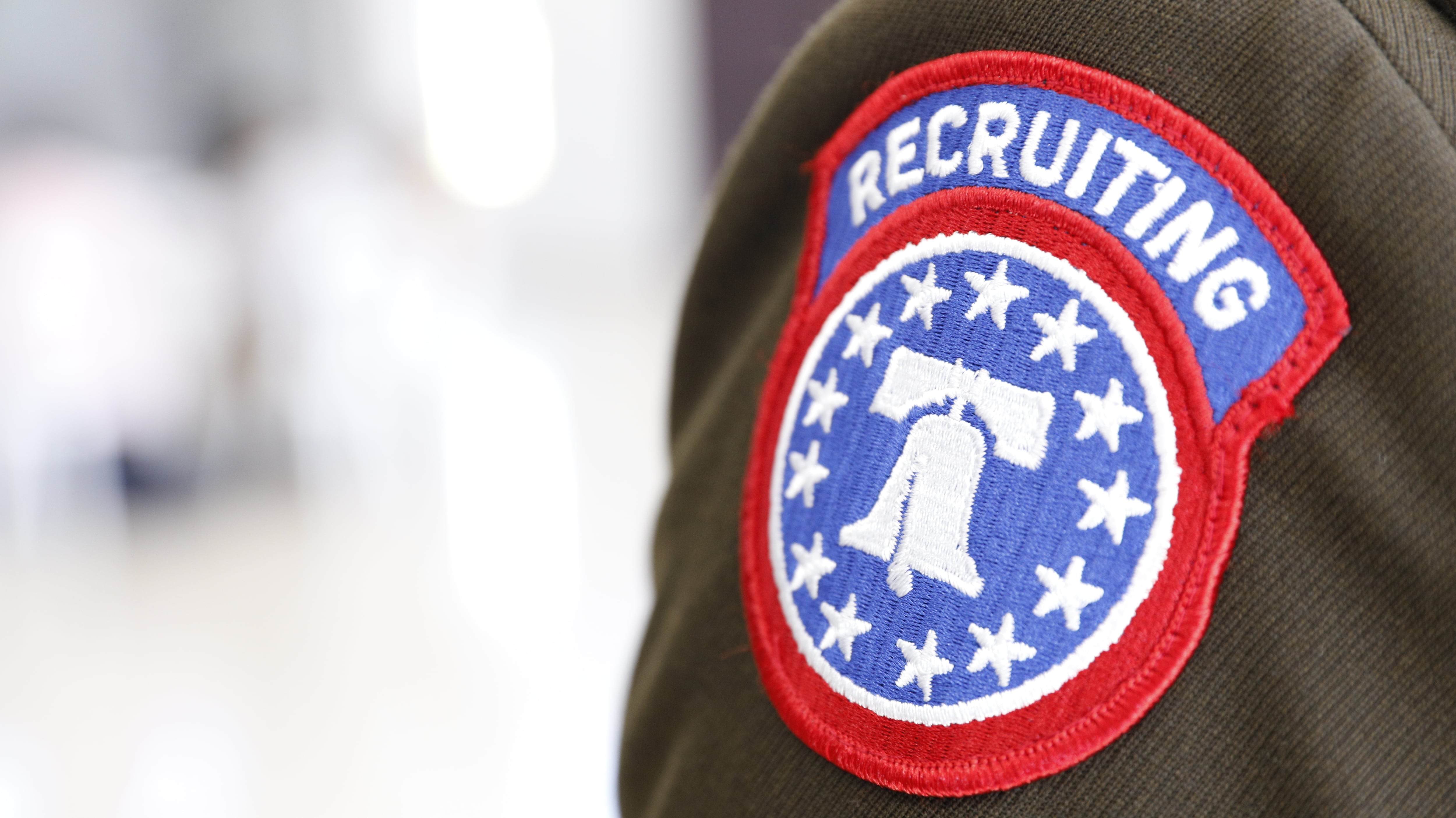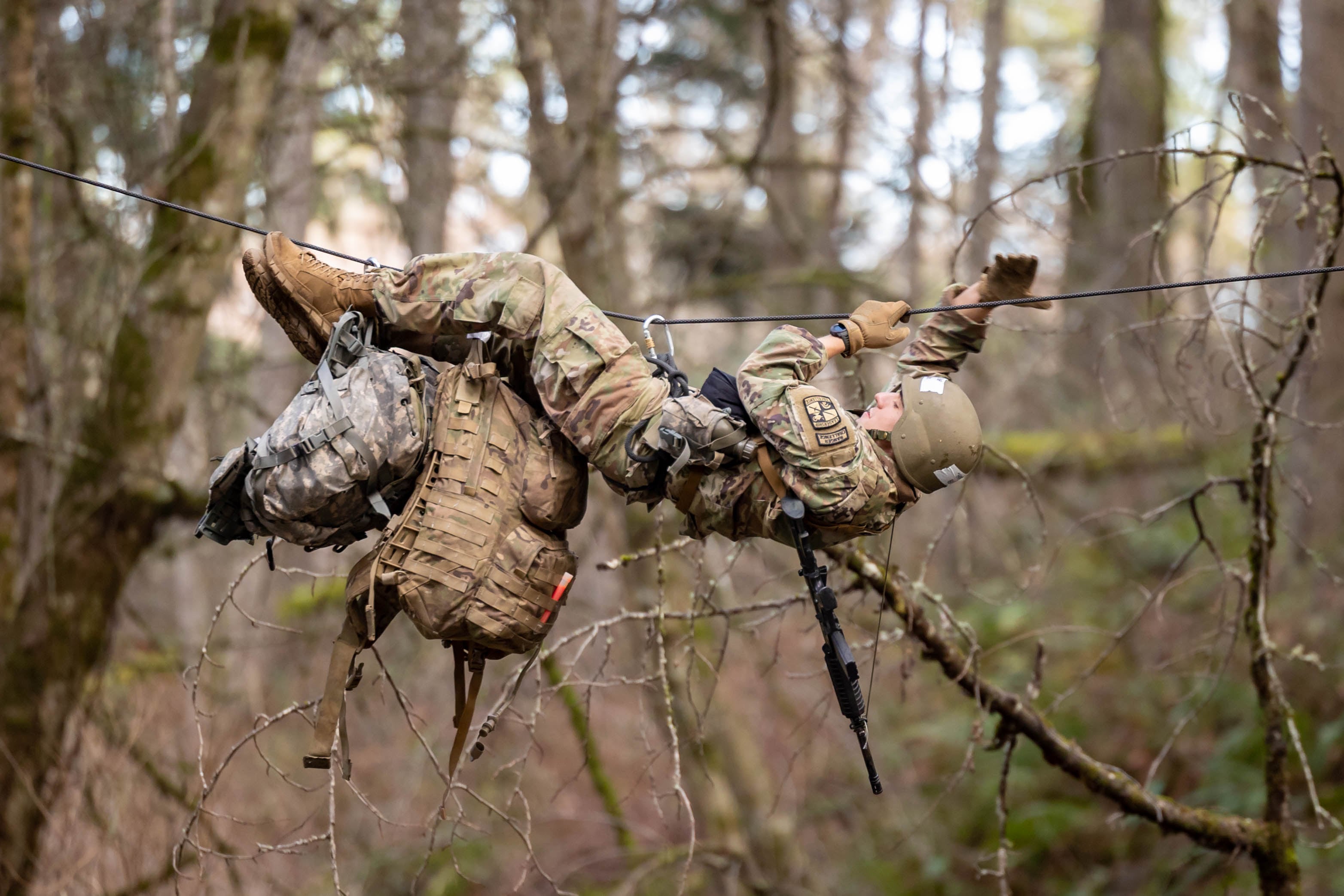The Army’s leading source of new officers is launching one of its largest structural realignments in decades, Cadet Command officials told Army Times.
By 2030, Army Cadet Command plans to establish or expand at least 13 Reserve Officer Training Corps units at colleges and universities across the South and Southwest, where four-year college enrollment rates have sharply increased in recent decades. The program, known as ROTC, brings in more than half of the branch’s new officers across all components annually.
The command will keep the moves resource-neutral by merging some existing programs, said spokesperson Maj. Dan Lessard, who added that “no Senior ROTC program will close, and no Senior ROTC cadet will be required to transfer to a new school.” The initiative will impact 18 existing units by downgrading them from standalone host programs to slightly smaller “extension units” that maintain their identity, on-campus classes and resources, according to planning documents reviewed by Army Times.
Cadet Command calls the initiative “ROTC Reset.” Lessard argued the moves will help the command “keep pace with long-term trends in higher education and shifting college age populations and demographics.”
The 18 programs downgrading from host to extension unit status are mostly located across the Northeast and Midwest, regions with declining four-year college enrollment, said a Cadet Command planning official who requested anonymity to detail the pending changes. The planner added that the merging programs largely “have not met” commissioning quotas “for the majority, if not all, of the last 10 years.”
But by maintaining the existing units at the “extension” program level, planning documents said, the command believes they can continue the Army’s relationship with the affected institutions.
According to the planner, selecting locations to start or supplement programs was largely a data-driven decision. In addition to aligning with large-scale trends in college enrollment across the country, Cadet Command considered numbers such as institutions’ freshman student retention rates and graduation rates.
Planning documents said the move will provide more than 200,000 undergraduate students access to ROTC on their respective campuses. Such units often also act as community ambassadors, the planning official noted, and the new and expanded programs will bolster the Army’s presence in Los Angeles, central California, San Diego, Dallas-Fort Worth, and the greater Miami area.
The two program expansions located outside of the deep South and Sun Belt are slated for historically Black institutions, or HBCUs: Tennessee State University in Nashville, Tennessee; and Delaware State University in Dover, Delaware. The Cadet Command planner said both universities have a growing population, and such programs are important for ensuring the Army’s officer corps better mirrors the demographic profile of the enlisted force.
Lessard provided a list of pending shifts to Army Times, but cautioned that some of the planned expansions still require the Army and the host university to negotiate agreements before they can take place. A portion of the expansions are already approved. The planner said that establishing or expanding an ROTC unit requires careful consideration of building space, facilities access and supplies — the process “takes 12 to 18 months to finalize,” typically, and “the university gets a say in this process.”

Cadet Command officials assess the move will allow ROTC to catch up to demographic trends and recruiting market shifts that planning documents candidly say the Army “has not kept pace with.”
The Army’s top leaders have adopted similar messaging about the major reforms unfolding across the Army’s enlisted recruiting enterprise as well. Cadet Command, as part of the initiative, now reports to Recruiting Command, which also aims to target prospective enlisted troops who have completed some post-high school education.
RELATED

Those efforts remain underway at the Fort Knox, Kentucky-based command, which is also gaining control of the service’s marketing arm.
Davis Winkie covers the Army for Military Times. He studied history at Vanderbilt and UNC-Chapel Hill, and served five years in the Army Guard. His investigations earned the Society of Professional Journalists' 2023 Sunshine Award and consecutive Military Reporters and Editors honors, among others. Davis was also a 2022 Livingston Awards finalist.





